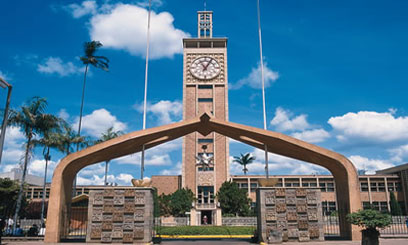NAIROBI, Kenya Feb 7 – Parliament is set to re-open next Tuesday amid a heavy legislative agenda.
Parliament has been on recess since December 21 and will resume sittings to a tight schedule which includes the passage of several laws among them devolution Bills that will facilitate operations of county governments.
The decision to re-open the House was arrived at on Tuesday after a meeting called by National Assembly Speaker Kenneth Marende and attended by among others, Constitution Oversight Implementation Committee (CIOC) chairman Abdikadir Mohammed.
Mohammed had led a section of MPs in petitioning the Speaker to immediately recall Parliament.
The COIC chairman protested that Bills would be passed hurriedly to beat deadlines as happened last year, unless the House reconvened immediately,.
The Transition to Devolved Government Bill 2012, The Inter-Government Relations Bill 2012 and County Government Bill 2012 which were approved by the Cabinet last month are among the key Constitution implementation laws expected to be passed by February 26.
MPs are also expected to debate and finally pass the Finance Bill, after it was withdrawn last year due to disagreements between the Treasury and MPs who wanted to amend the law to control bank interest rates and the cost of fuel.
Last December, the then Finance Minister Uhuru Kenyatta was forced to withdraw the Bill at least twice after the MPs vowed to vote against it but Kenyatta maintained that the amendments introduced in as substantive Motions and must not be included in the Bill.
The Finance Bill legalises taxation measures outlined by the Finance Minister in his budget statement delivered to the House in June.
Meanwhile, civil societies advocating for the implementation of the devolution legislation are calling on Parliament to prioritise two Bills that will empower county governments when it reconvenes next week.
Under the umbrella of The Institute for Social Accountability, the group wants Parliament to prioritise the passage of the Transition to Devolved Government Bill 2012 and The Inter-Government Relations Bill 2012 which were approved by the Cabinet last month.
They contend that without the legislation, it is not clear when the Ministry of Public Service will embark on the process of staff re-deployment, arguing that all transfers need to be done within a framework that allows a headcount of the existing staff and their skills; the number of staff needed by Counties and the skills needed.
The Bills seek to establish agencies that will guide the change to devolved government as well as minimise conflicts among counties, and between counties and the national government.
The lobby group says it looks forward to the establishment of a County Transition Authority (CTA) to manage the County transition process.
The CTA will be charged with auditing of assets and debts of local authorities, tallying of staff of both central and local authorities, educate the public on county governments, prepare county profiles, classify which town is a city and municipality and assist new county officials to draw budgets.
The Authority will also train county officials in their new duties, transfer functions originally done by national government authorities, review the performance of each county government and report its evaluation to the Commission for the Implementation of the Constitution and that of Revenue Allocation.
The CTA will have a full-time chairperson and eight other members appointed by the president on recommendation of the Cabinet secretary responsible for devolved governments.
In addition, Principal Secretaries in the ministries of Devolved Government, Public Service, Justice and Finance will sit in the Authority. The Attorney-General will be an ex-officio member of the CTA.
The chairman will be required to have qualifications as those of a Supreme Court judge.
Members will be required to have a degree from a recognised university, professional experience of at least 10 years and meet the requirements of Chapter Six of the Constitution.
With expected conflicts between county governments, the Inter-Governmental Relations Bill proposes the establishment of the National and County Government Coordinating Council chaired by the president and the 47 county governors as members.
The council will approve national development plans and help solve disputes between national and county governments.
But where disagreements emerge between counties, there shall be a Council of County Governors to deal with the problem.
This committee will comprise governors from the 47 counties who may elect their chairman.










































